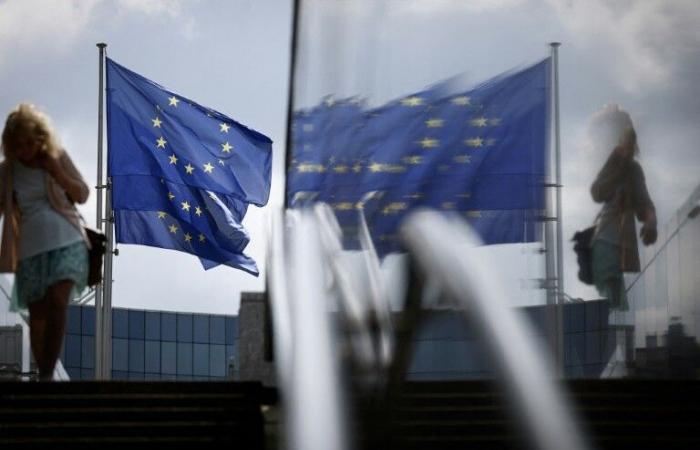Poland, increasingly ambitious on the European scene, took over from Hungary as the rotating presidency of the Council of the European Union on January 1, a change greeted with relief in Brussels.
For six months, Warsaw should play much more collectively than Budapest to try to advance European issues.
Starting with support for Ukraine, of which Poland is one of the fervent defenders, while Viktor Orban offended Brussels by going to Moscow in July to meet Vladimir Putin and by multiplying initiatives without consultation.
The Hungarian presidency has proven “quite exasperating” for other European countries, summarizes Guntram Wolff, of the Bruegel research center, based in Brussels.
“Everyone is impatient to make a new start,” echoes a diplomat, speaking on condition of anonymity.
The Polish presidency begins in the uncertain context of Donald Trump's coming to power on January 20 in the United States. Europeans fear American disengagement in Ukraine and trade tensions with the United States.
“We are in a period of extreme challenges, there is a war right next to us” in Ukraine, underlines Ambassador Agnieszka Bartol, Polish permanent representative to the European Union.
For six months, Poland prioritized European security, whether military, economic or energy.
The Polish government also intends to invest in the fight against illegal immigration. Before the European summit in March, he is waiting for the Commission's proposal to facilitate expulsions.
“It will be on the agenda very quickly,” insists Agnieszka Bartol, who considers the asylum and migration pact, adopted in May 2024 but which Poland voted against, insufficient.
On this migration aspect, the government of Donald Tusk obtained a green light from the Commission on December 11, authorizing certain exceptional limitations on the right to asylum in the event of “instrumentalization” of migrants by Russia.
Poland accuses Russia and Belarus of using the influx of migrants to its border to destabilize the region.
– “Very hard cohabitation” –
Among other issues of this rotating presidency, the Polish authorities should support the “clean industry pact” that the European Commission must present at the end of February.
Poland has indeed positioned itself in the manufacturing of lithium batteries for electric vehicles, of which it has become a European leader.
“Poland is well placed to use its presidency to secure agreement on a strong EU investment program in clean technologies,” says Neil Makaroff, member of the Strategic Perspectives think tank.
The country of nearly 37 million inhabitants, however, remains very dependent on coal, the source of 63% of its electricity production in 2023. But it is trying to move towards renewables, associated with the project to put into service a first nuclear power plant by 2030.
On the climate side, Europeans must negotiate during the year the objective proposed by the Commission to reduce greenhouse gas emissions by 90% in 2040, compared to 1990.
But the discussions have barely started. NGOs fear that the Polish presidency will not be forthcoming on the subject and that we will have to wait for the handover to Denmark on July 1st.
Exercised in turn by each member state for six months, the rotating presidency of the Council of the EU has a symbolic dimension but makes it possible to provide impetus within the 27.
Poland's ambitions could, however, be limited by its national electoral deadlines.
A presidential election is planned there in 2025 and could encourage Donald Tusk to be cautious on the European scene.
“This will handicap them because they are in very difficult cohabitation,” recalls a European diplomat. “On the big choices, they will always position themselves in the light of the presidential election.”
Poland is experiencing a delicate cohabitation between the pro-European government of Tusk and the conservative president Andrzej Duda, close to the Polish nationalist Law and Justice (PiS) party and who vetoes most government legislative initiatives.






